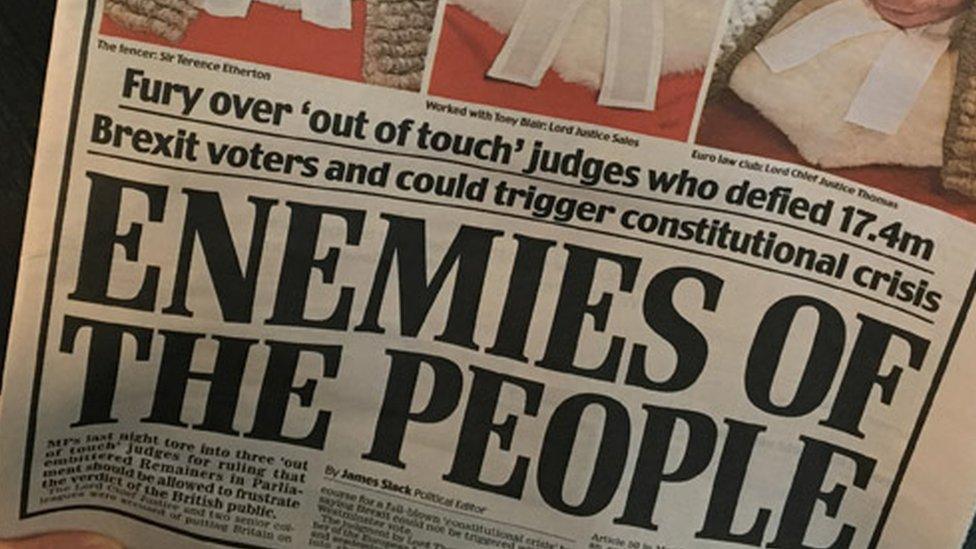UK judges need clarity after Brexit - Lord Neuberger
- Published
- comments
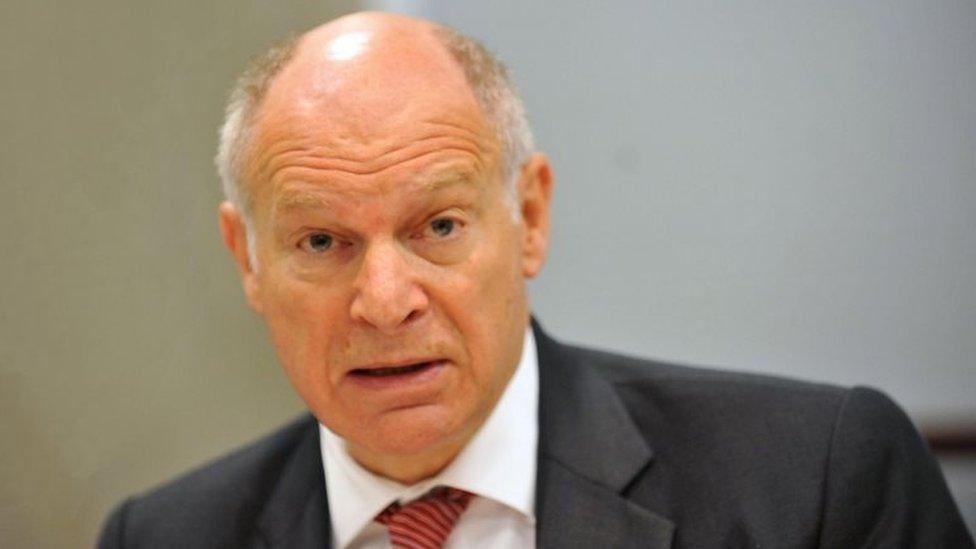
Lord Neuberger is retiring next month but says he is thinking of the dilemmas judges will face after Brexit
Britain's most senior judge has told the government it must provide more clarity about how UK law will be developed after Brexit.
Currently, UK legislation is subject to rulings made by the EU's highest court, the European Court of Justice.
Lord Neuberger said Parliament must be "very clear" in telling the judges what to do about decisions of the ECJ after the UK leaves the EU.
He said judges should not be blamed for misinterpretations if it is unclear.
Prime Minister Theresa May has insisted the ECJ should have no jurisdiction over the UK after Britain leaves the EU.
UK courts will continue to interpret ECJ case law - even after Brexit.
Lord Neuberger, who will step down as Supreme Court president next month, told the BBC that judges need more guidance on how they should do just that.
"If [the government] doesn't express clearly what the judges should do about decisions of the ECJ after Brexit, or indeed any other topic after Brexit, then the judges will simply have to do their best."
"But to blame the judges for making the law when parliament has failed to do so would be unfair," he added.
He said all judges "would hope and expect Parliament to spell out how the judges would approach that sort of issue after Brexit, and to spell it out in a statute".
Leave campaigner Owen Paterson tells Today UK should set up body to mirror the ECJ
The ECJ is in effect the EU's Supreme Court, overseeing the application and interpretation of EU law. Its rulings are binding on all member states.
When the UK leaves the EU, the ECJ will continue to develop law on everything from consumer rights to discrimination - from things like compensation for airline passengers to transgender rights.
The government's Repeal Bill states that UK courts do not have to pay any heed to decisions of the ECJ after the UK has left the EU - but any court "may do so if it considers it appropriate".
Brexiteers, such as ex-Conservative leader Iain Duncan Smith, want the authority of the ECJ expunged as soon as possible after Brexit. He has called the court "an illegitimate challenge to our sovereignty".
Opponents point out the apparent contradiction of that position, saying any British company or organisation doing business in the EU is subject to the jurisdiction of the ECJ.
Historic rulings
The EU's position document that deals with governance issues around the withdrawal agreement says all Court of Justice rulings would be enforceable in the UK.
The government has said its repeal Bill - also known as the European Union (Withdrawal) Bill - will ensure that historic judgements of the ECJ will be given the same binding or precedent status in our courts as decisions of our own Supreme Court.
These judgments extend some rights in areas including the calculation of holiday pay for UK workers.
The Supreme Court rarely departs from one of its own decisions and so historic rulings of the ECJ will be binding upon it in almost all situations.
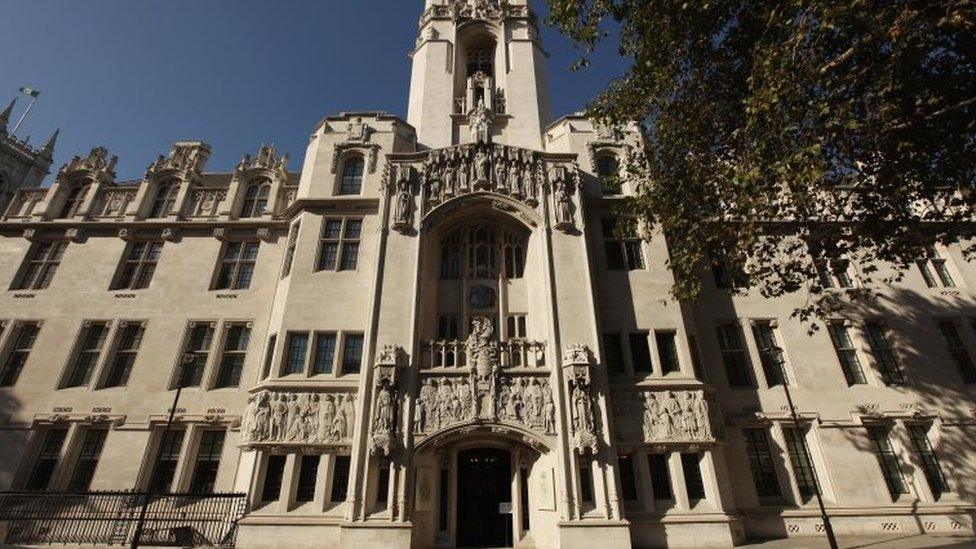
Lord Neuberger will be succeeded as President of the Supreme Court by Lady Hale in September
But Lord Neuberger said he was more concerned about post-Brexit rulings of the ECJ, adding: "If the UK parliament says we should take into account decisions of the ECJ then we will do so.
"If it says we shouldn't then we won't. Basically we will do what the statute says."
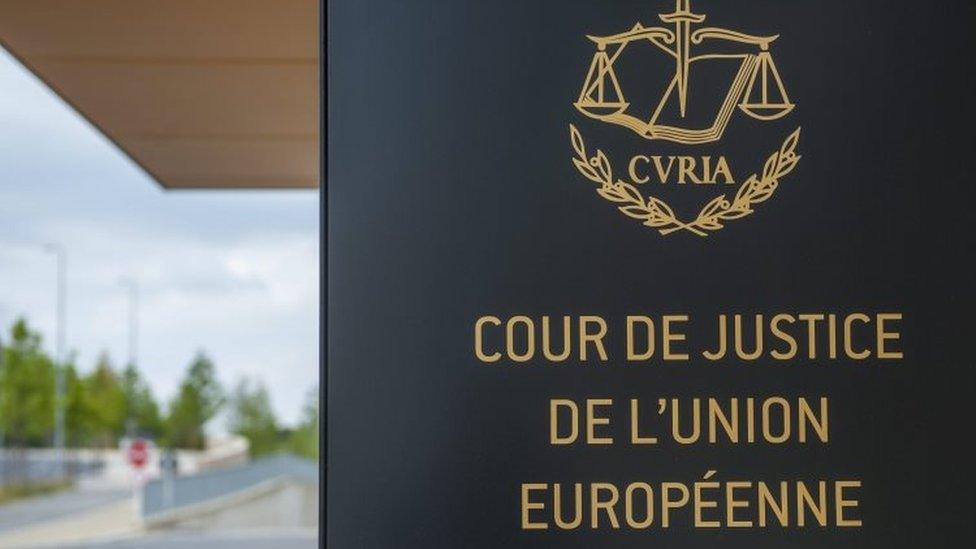
Lord Neuberger, who will be replaced in his position by Baroness Hale, also expressed his concerns about cuts to legal aid, which was largely removed for most family cases in 2013.
He said: "I appreciate there are demands on government finance and money is short, but if people have a right to go to court to defend their position or enforce their rights then if they cannot do so the rule of law is undermined and we are all in a very unhappy situation."
Speaking on BBC Radio 4's Today programme, former Conservative minister Owen Paterson, who campaigned to leave the EU, suggested a new UK body with specialist British lawyers to adjudicate on the interpretation of EU law.
"You cannot leave the judges flapping around without clear guidance and I would suggest we set up our own body which would parallel and mirror and be in symmetry with the ECJ," he said.
A government spokesman said: "We have been clear that as we leave the EU, the direct jurisdiction of the European Court of Justice in the UK must come to an end.
"However, we want to provide maximum certainty so the Repeal Bill will ensure that for future cases, UK courts continue to interpret EU-derived law using the ECJ's case law, as it exists on the day we leave the EU."
- Published25 July 2017
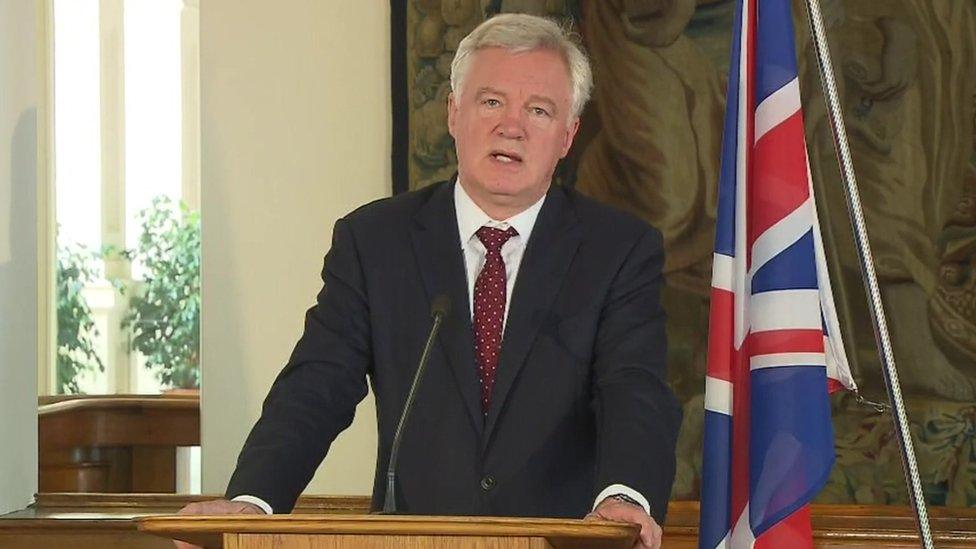
- Published23 August 2017

- Published16 February 2017
